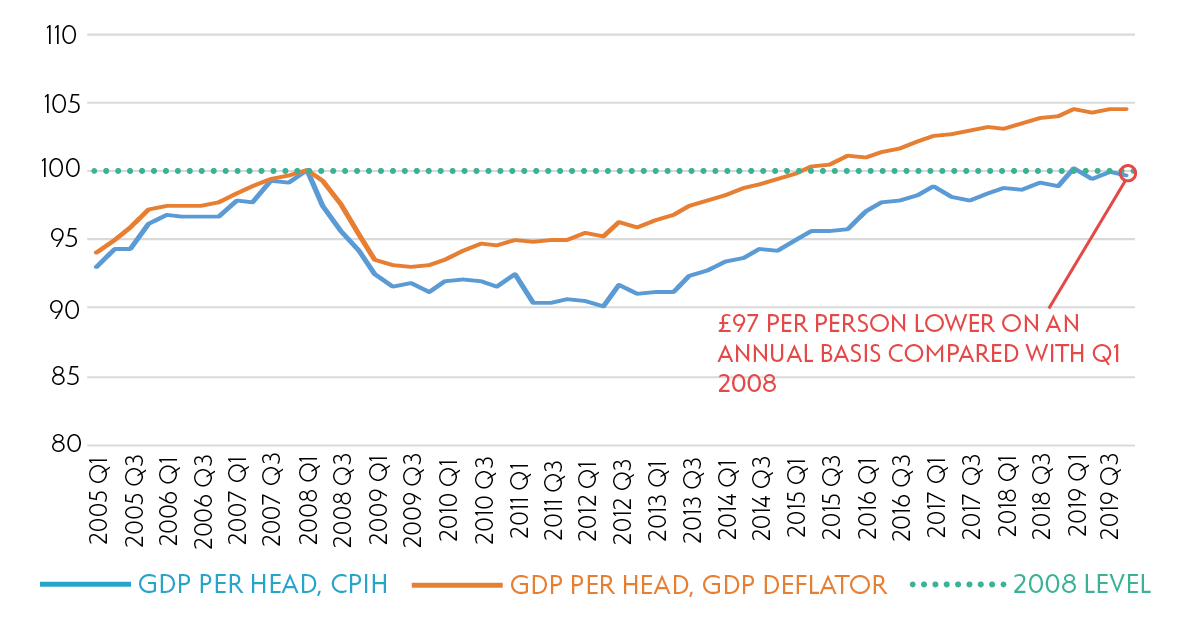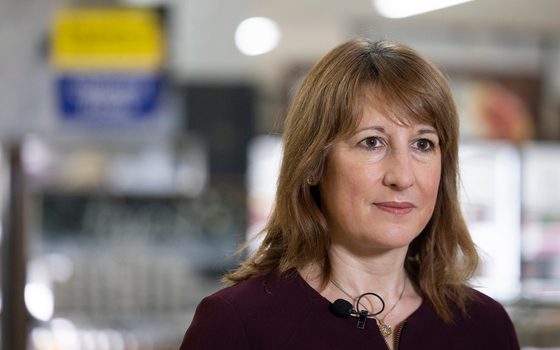The UK population is still poorer than it was in 2008
New analysis by the New Economics Foundation shows average living standards are still £100 per year lower than 12 years ago
11 February 2020
Today’s first quarter estimates for GDP show that in the three months to Christmas, the UK population was still £97 poorer on average compared to the first three months of 2008 after taking into account rises in inflation as experienced by consumers, according to analysis from the New Economics Foundation (NEF). This is despite the official statistics suggesting average living standards returned to 2008 levels in 2015. The analysis shows that the official statistics do not bear out the lived experience in the economy.
Official estimates for GDP use the ‘GDP deflator’ to measure inflation, which accounts for changes in price of domestic UK output, or‘value added’. But output prices exclude VAT and the prices of imports which impact on the prices paid by UK consumers. This means that the rate of change in consumer prices can be quite different to those reflected by changes in the GDP deflator.
When estimated using consumer prices, real GDP per head is still below 2008 levels
Respective indices for real quarterly GDP per head, one computed using the GDP deflator (ONS chain volume measure) and the other using consumer price inflation (CPIH) Q1 2005 to Q4 2019, Q1 2008 = 100

Source: NEF calculations using ONS estimates for CPIH (ID: L522), nominal GDP per head (ID: IHXT) and real GDP per head, ONS chained volume measure (ID: IHXW)
Alfie Stirling, Head of Economics at the New Economics Foundation, said:
“The current debate on the economy and Brexit is at risk of missing the wood for the trees – whatever the nature of tomorrow’s trade deals, the far bigger issue is that the economy is failing the majority of people today.
“The current political turmoil has distrust in technocracy and‘expert’ views at its core. Matters won’t be helped if too much attention is given to where the next recession is going to come from, when the average person has yet to even recover from the last one.”
Contact
Becky Malone, becky.malone@neweconomics.org, 0207 820 6310
Notes to editors
See here for a further discussion of the methodology used in this updated analysis.
The New Economics Foundation is a charitable think tank. We are wholly independent of political parties and committed to being transparent about how we are funded.
Topics Macroeconomics






